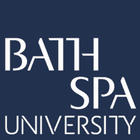About Bsc (hons) Criminology in Bath Spa University
We're fascinated by crime. Turn on the television or search for something online and you'll soon encounter images, reports and programmes about crime, justice and punishment. Crime saturates media and popular culture, suggesting both our enduring fascination with wrongdoing and its consequences, and crime's status as an ongoing social problem.
But, what's the story behind these representations of crime? Criminology explores the causes, motivations and patterns of criminal conduct. In addition to improving our knowledge and understanding of crime, Criminology also informs policies and practices in policing, law, criminal justice and punishment.
With our Criminology degree, you'll study crime from a variety of approaches, gain practical and relevant experience, and develop a range of transferable skills that you can take into a range of careers and employment sectors.
Criminologists study crime from a variety of approaches, making this a diverse field of study. You’ll study crime from a variety of angles and perspectives. Core modules focus on the main theories, debates, issues and research problems in criminology and criminal justice, while optional modules enable you to develop your particular interests.
We’ll support and encourage you to gain practical experience in relevant fields through voluntary work and placements. You’ll develop practical and analytical skills as well as subject knowledge in crime and criminal justice.
Opportunities
Work placements, industry links and internships
We’ll strongly encourage you to take advantage of placement opportunities in your second and third year, so you can apply your learning in the real world contexts of criminal justice. Practitioners contribute to teaching in some modules and you can find out more from them about working in fields related to criminal justice. Field trips, such as to local courts, will also provide opportunities to observe the legal system in action and learn more about potential careers. We also have links with local criminal justice organisations including local police services and prisons.
Projects
Project work enables you to focus on your particular interests and is built into all three years of the programme. Through individual and group projects you’ll develop employment-related skills in research, analysis, time management, leadership, problem-solving and planning.
Your first year involves a project with creative, critical and reflective elements. Moving into your second year, you’ll undertake in-depth study of the spatial dimensions of crime and learn digital crime-mapping using ARC-GIS software. A module in research methods will give you experience of research design and data collection and analysis to support project work. In the dissertation core module in your third year, you can apply the knowledge and skills you’ve developed to an independent research project on any criminological or criminal justice topic that interests you.
Careers
A qualification in Criminology will prepare you for a career in a variety of relevant fields in criminal justice and associated social and welfare professions including:
- Policing
- Crime prevention and security
- Crime reduction initiatives
- Law
- Offender management and interventions
- Prisons
- Probation
- Youth justice
- Social work
- Community development
As a social sciences degree, the course will give you with a range of transferable skills which you can take into a career in a number of others sectors such as health and social care, marketing, HR, teaching or the media.
Academic qualification equivalents
- Higher Secondary School Certificate/Indian School Certificate (standard XII) from the following boards CBSE/CISCE/WBCHSEB, with 65%, including grade C in at least five subjects.
English language requirements (one of the below):
- IELTS:Academic 6.0 overall This must include a minimum of 5.5 in Listening, Speaking, Reading and Writing.
- TOEFL iBT: A total of 72, to include a minimum 18 in Reading, 17 in Listening, 20 in Speaking, and 17 in Writing.
- PTE: This must include a minimum of 51 in Listening, Speaking, Reading and Writing.
Bath Spa University Highlights
| Type |
Public |
| Campus Setting |
Urban |
| Tuition Fees for International Students (full-time degrees in 2020-2021) |
13,700 GBP - 15,300 GBP (varies with the courses) |
| Campus Housing Capacity |
25% |
| Student Retention Rate |
89% |
| Scholarship Availability |
Yes |
| Applications Accepted |
Online |
| Work-Study |
Available |
| Intake Type |
Yearly |
| Mode of Program |
Full time and part-time |
Bath Spa University Average Tuition Fees And Other Expenses
International students joining the Bath Spa University are required to pay 70% of the tuition fees on or before arrival and commencement of the course. All payments should be made in £ sterling and the easiest way to make a payment is via Flywire. However, the payment can also be made through credit/debit card.
International students should open a UK bank account as soon as possible after arrival.
The estimated cost of attendance depends on several factors like the program applied for, tuition, books, fees, housing, dining, and personal items.
| Expenses In GBP |
Undergraduate (per annum) |
Graduate (per annum) |
| Tuition Fee for International Students (full-time courses) |
13,700- 15,300 (varies with the field of study chosen) |
13,700- 15,300 (varies with the field of study chosen) |
| Career and Professional Development Fees |
145 |
145 |
| Housing and Rooms |
8,412 |
8,412 |
| Health Insurance |
150 |
150 |
| Books and Supplies |
500 |
500 |
| Meals |
3,225 |
3,225 |
| Personal Expenses |
792 |
792 |
